Speak to anyone who knows me, and they’ll tell you that I’m a pretty big Apple Fanboy. Whether it’s a new MacBook, iPhone, Apple Watch, or iPad, there’s a good chance I’ll look to buy it as soon as it comes out.
My habit started about 15 years ago when I first purchased a MacBook Pro. It didn’t make me a better developer, nor did it give me skills that I couldn’t have achieved on a cheaper laptop. It just felt better.
Some would say I am a sucker for good marketing. Apple is the best at marketing in the world after all… But it highlights an important fact about jobs, that many people overlook.
Whilst most product people will have no issue identifying the functional jobs for a customer, the reality is that this is the tip of the iceberg. Deep under the water, there are two other types which customers seek to achieve - Social and Emotional jobs.
My habit of purchasing Apple products wasn’t formed because of a functional need. If this was the case, I would have bought a much cheaper Dell. Oh no, having a Mac was different… it was a sign of status. It was a statement that I wanted to be different. Plus, how cool does an aluminium case look?
Clayton Christensen’s reflects on the three types of job in his latest book ‘Competing against luck’.
“Fully understanding a customer’s job requires understanding the progress a customer is trying to make in particular circumstances and understanding all of its functional, social, and emotional dimensions—as well as the trade-offs the customer is willing to make.”
Functional Jobs
Functional jobs are the tasks or problems your customer is looking to complete. Examples of these are washing their hair, keeping warm on a winter’s day, getting from A to B.
Social Jobs
By contrast, Social jobs are tasks where your customer wants to look good or gain power. Social jobs alter how others perceive them.
One of my good friends has a ritual of buying a new suit for the first day of every new job they start. Suits aren’t cheap, what’s driving this behaviour? He reasons that a sharp suit helps him look competent and professional to his colleagues.
Emotional Jobs
Where social jobs are all about how others perceive a customer, emotional jobs are all about how a customer feels about themselves. They might buy something to feel more confident, to feel knowledgeable, or to improve their happiness.
Triune Brain
Neuroscientist Paul D. MacLean’s theory of the triune brain poses that our evolution has led us to have three distinct structures required for our survival.
The triune brain consists of the reptilian cortex, the limbic system, and the neocortex.
These sections have three distinct functions. The reptilian takes care of our basic survival and helps us eat when we’re hungry, sleep when we’re tired, and flee when we’re in danger.
Our limbic system directs our emotional responses and guides the majority of our decisions. Finally, the neocortex is the intellectual part of our brain which gives us our analytical and logic abilities.
Psychologists have shown, that when the three systems conflict the reptilian brain takes over decision making. When people avoid public speaking, our fight or flight systems take over as the three systems go into conflict. Equally, when the emotional, and intellectual parts conflict, emotion wins.
Designing to win
A strategic advantage for product companies looking to innovate is to launch products that target all three sections of the brain.
Given that the majority of us aren’t often put in situations where our lives are at risk, focusing on the functional and emotional sections of the brains leads to a strong product connection.
As I mentioned, Apple is the master at this. Their products deliver our functional/intellectual needs, but they also deliver 10/10 on style & cool factors.
Their ability to combine a product that is both functionally and emotionally appealing is their advantage over their competitors. Using a differentiation strategy that builds on top of a strong emotional response has led to them being the worlds biggest tech company.
Who better to sum up why they are so good than Steve Jobs himself… here’s to the crazy ones.


